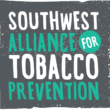Everyone plays a role in creating a safe and healthy community for our youth
As a community member you can be involved in many ways with the efforts of Youth 2 Youth 4 Change. Join a committee, volunteer for an event, become a task force member or just “like” us on Facebook.
Underage Drinking
As a community member, you can be a good role model to our youth. Drink responsibly by refraining from binge drinking, having a designated driver when needed, and keeping alcohol out of the reach of children and teens.
Be aware of the messages you are sending to children. Have you ever reached for a drink, saying, “I had a tough day”?
Do you tell drinking stories in front of kids?
Do you ever ask a kid to get you a beer from the refrigerator?
Do you encourage your own friends to drink more? “Come on, just have one more!”
These can send mixed messages.
Prescription Drug Misuse
According to the Substance Abuse and Mental Health Services Administration, 1 out of 4 teens report taking a prescription drug at least once in their life not given to them by a doctor.
70% of abused prescription drugs are obtained from family and friends.
What can you do? Take the steps recommended in our Prescription For Safety.
Prescription for Safety
Secure: Safeguard your medications. Lock them up! JM4C offers free home medication lock boxes as a safe and secure place to store your prescription drugs.
Monitor: Would you know if someone took a few? Be able to say “Yes!”
Dispose: Use a drop box to safely get rid of expired or unused medicine. The map below shows the Rock County Drop Box locations.
Youth Recreational
Marijuana Use
Y2Y4C is concerned about the impact of marijuana on our youth and is opposed to youth using marijuana recreationally. According to the most recent Youth Risk Behavior Survey, 10% of 9th graders have used marijuana within the past month. Youth increasingly believe marijuana is not harmful. Since 2014, the number of youth who perceive marijuana to be harmful has fallen from 64% to 32%. This 50% decrease is concerning for those working on preventing youth substance use. (Janesville Youth Risk Behavior Surveys, 2014, 2016, 2018).
Marijuana use may lead to negative consequences for youth.
- Marijuana is harmful and addictive for underage users. According to the National Institute on Drug Abuse (NIDA), the average THC content in confiscated marijuana samples in the 1990’s was roughly 3.8%. In 2014, it was 12.2%. The average marijuana extract contains more than 50% THC (mind-altering ingredient), with some samples exceeding 80%. Marijuana use disorder becomes addiction when the person cannot stop using the drug even though it interferes with many aspects of his or her life. Studies suggest that 17% (1 in 6) of those who start using marijuana in their teens will become dependent. (NIDA, June 2018)
- Marijuana interferes with brain development. The brain is still undergoing development throughout adolescence and does not fully develop until approximately age 25. According to a study published in JAMA Psychiatry, they found that compared to non-users, those who used marijuana frequently were more likely to have slightly lower scores on tests of memory, learning new information and higher level thinking involving problem solving and processing information.
- Youth rates increase as marijuana is more accessible. Each state that has legalized marijuana (Colorado, Oregon, Washington, and Alaska) appeared on the 2013-2014 top list of highest youth rates per SAMHSA. (NSDUH, December 2015-samhsa.gov)
Childhood Trauma Programs
ACEs, or Adverse Childhood Experiences, can impact brain development and the behavior of youth. If we work together we can mitigate the impact of how these experiences affect our youth.
Chronic Stress can be toxic to children’s brains.
Handle With Care is a collaboration between law enforcement and school districts to give the schools a “heads up” when a child or adolescent is involved in a potentially traumatic event. No details are shared, but school staff are alerted so that they can give the child the proper patience and support should any behavioral issue arise.
Drug Endangered Children is a collaboration between law enforcement, child protective services, the court system that aims to look at the needs of the children as a priority in drug cases where children are living in the home. By providing for the needs of the children, we hope to break the cycle of inter-generational drug abuse.
Rock County Trauma Task Force
Join the Rock County Trauma Task Force to help us create a trauma-informed community. Initiatives of the task force include Handle with Care, Drug Endangered Children, and ACE Interface presentations.
Any organization who serves families or youth is encouraged to join as a way to learn more about the impact of trauma, to increase your organizational capacity for becoming trauma-sensitive, or to share the efforts you are doing around the impact of trauma!
Proper Disposal of E-Cigarettes and Vaping Devices
E-cigarette and vaping device batteries and vaping liquids (nicotine, THC or CBD) must be disposed of properly. Batteries and vaping liquids are disposed of at separate locations. Place all parts of the device into a sealed container for storage before taking to the proper disposal site. There is no disposal fee. Please take precautions when handling e-cigarettes and vaping devices. Always protect yourself by wearing gloves.
BATTERY
Most batteries found in e-cigarettes are lithium or lithium-ion, a type of hazardous waste.
The Wisconsin Department of Natural Resources (DNR) requests recycling of e-cigarette batteries using the “E-cycle” program. There are E-cycle locations in each Wisconsin county.
To find the nearest location, visit:
DNR Wisconsin webpage and search “E-Cycle” or call 1-877-723-1297
If the battery cannot be removed, contact your local E-Cycle collection site regarding the product’s ability to be recycled.
If you are unable to find an E-Cycle site near you, many communities host one-day collection events during the spring, summer and fall. The scheduled events are listed on the DNR Wisconsin webpage.
VAPING LIQUID
The Environmental Protection Agency (EPA) listed “nicotine & salts” and “liquid nicotine” as acute hazardous waste.
Vaping liquids, including full or used pods and bottles of e-juice, can be disposed at Drug Take Back locations in Wisconsin.
To find the nearest location, visit:
Dose of Reality Wisconsin webpage and click on “Drug Take Back”
Drug Take Back locations will ONLY accept vaping liquids (pods, cartridges, E-Juice) after the battery is removed. Other tobacco products (cigarettes, chew, etc.) will not be accepted and should be destroyed, so that they are no longer usable (cigarettes could be dunked in water, etc.).
If you are unable to find a Drug Take Back location near you, contact your local law enforcement for recommendations
P-02782 (04/2020)
Please call both of these local disposal sites prior to bringing products to ensure they are actively collecting e-cigarettes & vaping devices.



